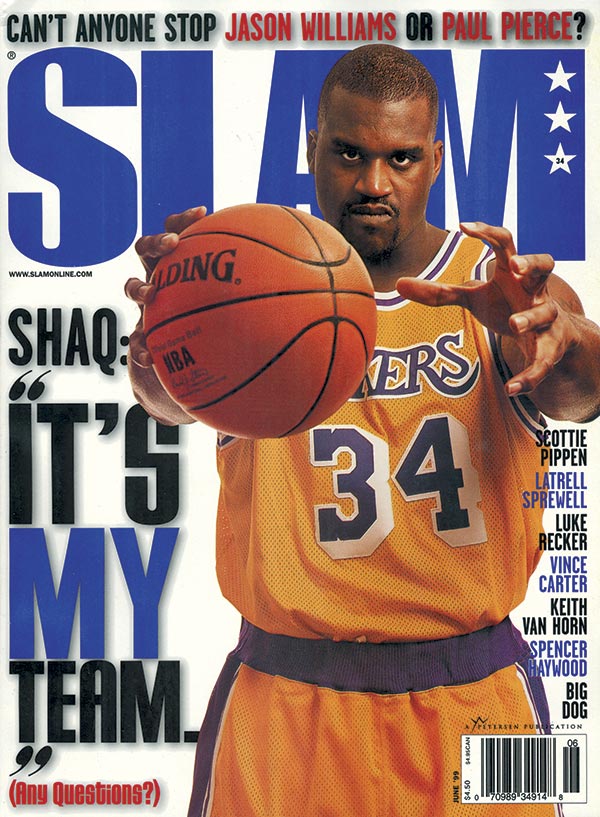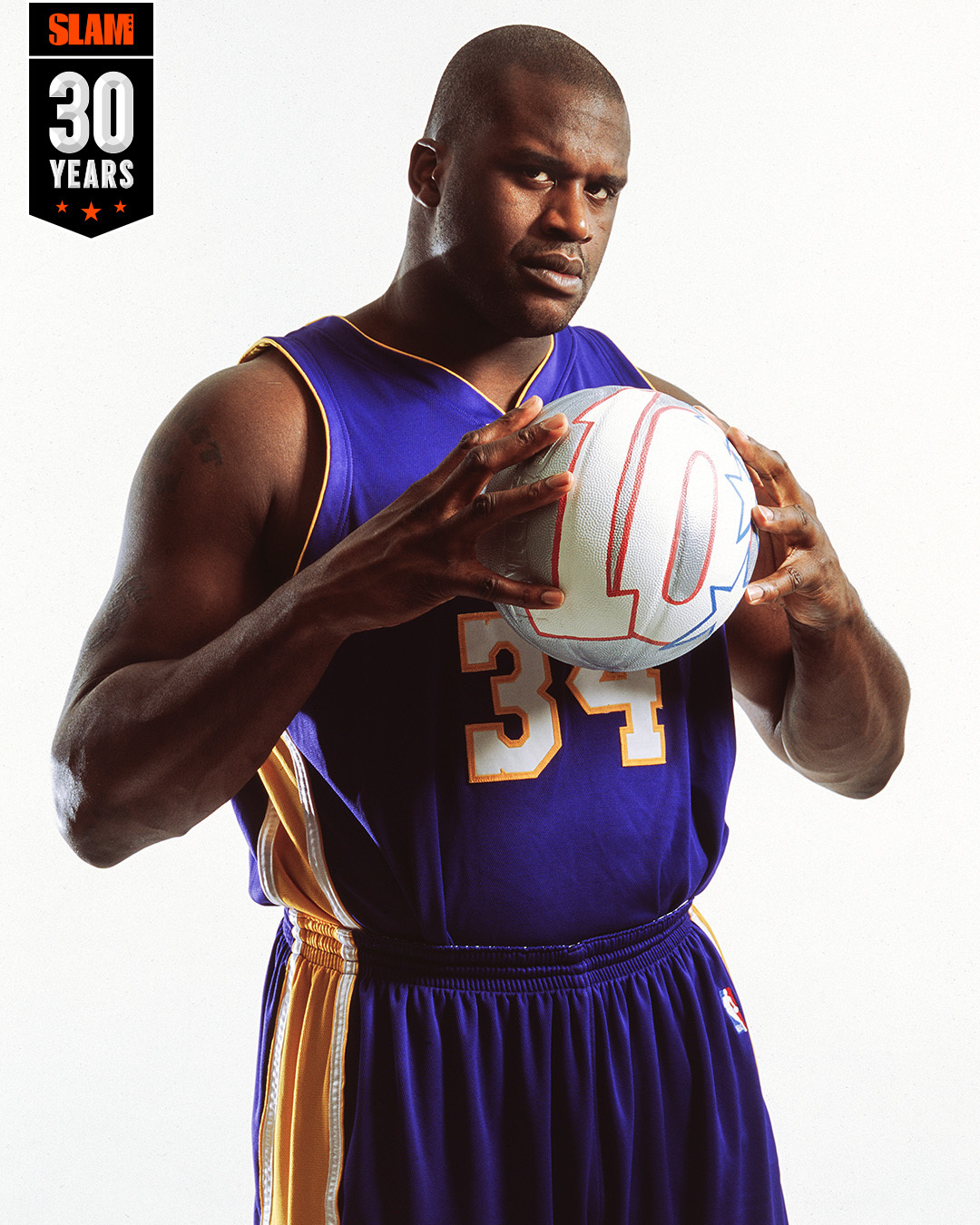For three decades we’ve covered many amazing basketball characters, but some stand above the rest—not only because of their on-court skills (though those are always relevant), but because of how they influenced and continue to influence basketball culture, and thus influenced SLAM. Meanwhile, SLAM has also changed those players’ lives in various ways, as we’ve documented their careers with classic covers, legendary photos, amazing stories, compelling videos and more.
We compiled a group of individuals (programming note: 30 entries, not 30 people total) who mean something special to SLAM and to our audience. Read the full list here and order your copy of SLAM 248, where this list was originally published, here.
“Black Steel in the Hour of Chaos.” Purple “a” in chaos. To this day, still, probably the most brilliant story title and opening spread for a feature in the history of this magazine. The slightly out-of-focus stark-black and shaded- white Bob Berg portrait. Looking like DaBaby’s daddy. Russ spent hours looking at the picture and reading the story in search of the perfect words to call it. Looking at the picture and reading the story again. And again. The story of the drama orbiting Shaq’s basketball world. Penny. Kobe. Lakers. Contracts. Free throws. No rings…yet. Injuries. Shaunie. Hollywood. Career. Then Russ yelled, “I got it!” Damned if he didn’t.
And while the brilliance of the title and spread took center stage, it was the story that became the story. The story of getting Shaq to sit for the interview and photo shoot (Issue 34 + Shaq’s uni number 34 = Levels), of giving us time that very few athletes had given us (two days, if I’m correct?), of the insanity and ignorance of us waiting five years and 31 issues (as Tony explained in his hilarious and equally brilliant “Sixth Man” Ed. letter to open the issue) between covers with him on them. It was a story of society’s unique and unusual love/hate relationship with Shaq. Of the love he gave the world and the hate it gave him in return. The story was a chaotic, all-over-the-place journey of the conflict inside one of the greatest ballplayers we’d ever witnessed as he struggled between the power and indifference between (and the importance of that indifference) greatness and dominance. And how he chose dominance.

There’s also that difference between being loved and being beloved. What we learned from and about Shaq over the 30-year relationship this magazine has built with him is that sometimes it’s better to be one than the other. It all depends on what you are looking to get out of life and how you want the world to receive you and your contributions. See, Shaq changed the course of this magazine (and those of us who worked on the decades of stories that have been done on him), what it would become, and our collective approach in how to make it what it eventually became. He taught us how to balance patience and persistence in approach and storytelling. He taught us to expect nothing while being prepared for anything when it came to plotting and planning stories. He (along with MJ and AI) taught us that icon athletes will always be more important to the reader than the writer telling the story or photographer lensing it. Presence is a present. He is Him. There’s only one Shaquille O’Neal. Rather be loved than beloved.

Aesthetically adjacent to his basketball prodigy was his ability to multi-hyphen on a Donald Glover-level that no one understood while he was collecting Larry O’Briens. Stacking chips, hoisting trophies, spitting bars, dropping gems, moving product, marketing dreams, building brands, getting degrees, becoming police, rescuing cats, investing ingeniously, extending zeros into a cultural and wealth-building account that already had more commas than only a handful of athletes who’d ever lived. The giant wasn’t gentle, he was brilliant. One of none. The one MC Wu should have asked to GA on “C.R.E.A.M.” No one else woulda made sense.
There was a moment toward the end of those two days with Shaq in 1999 when he made it all make sense. The Lakers had won 61 games the previous season and could have easily won 70
had Shaq not missed 22 games and played through an injury instead of saving himself for May and June. He said, “Had I played, we woulda won 75.” But winning 75 games wasn’t the point, having the greatest record in NBA history wasn’t the point, just winning a ring wasn’t the point. It was the way he was going to lead the Lakers to eventually win those rings that was.
“Domination,” I remember him saying. That he’d rather go through the playoffs unbeaten—something that no team in NBA history had ever done—than to go down in history with the most wins ever in the regular season. Because, if nothing else is learned about how Shaq flows in mind and process, when it’s all said and done, being unbeatable—and unbeaten—is greater than being the greatest. The very next season the Lakers began their three-peat. That TWIsM life: different.
He also said another prophetic thing that was hidden in that PE entitled story but used as a pull quote: “When the game is over, they’re going to remember my name.” Preach, n****.